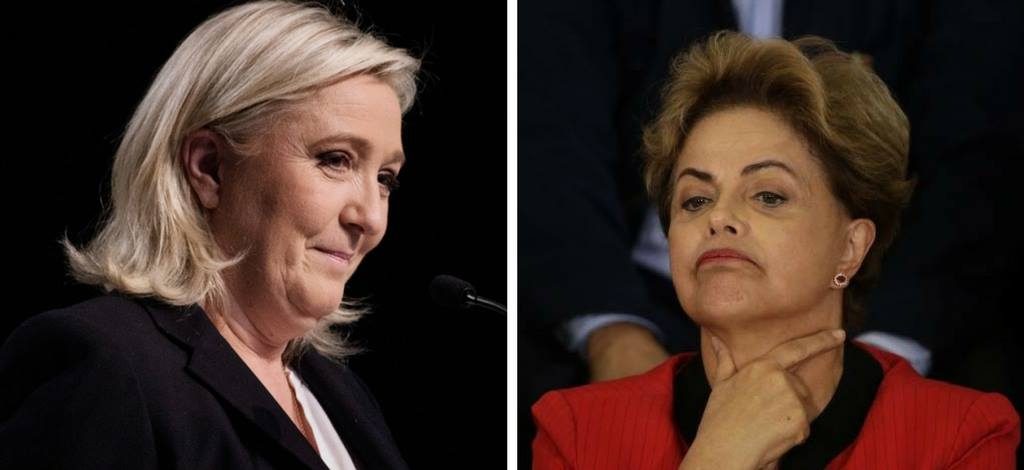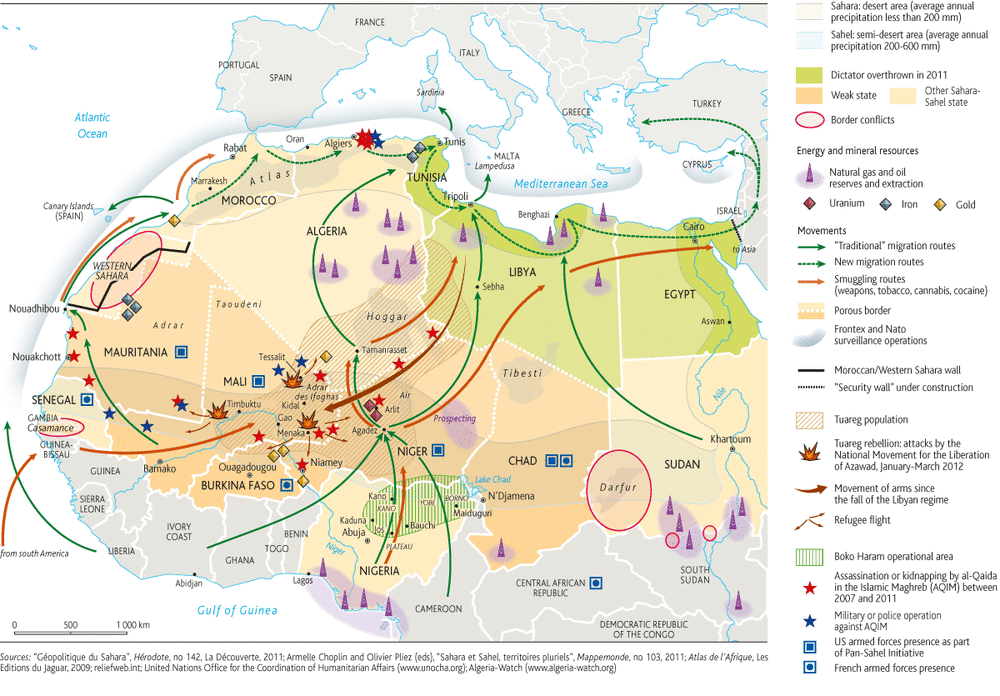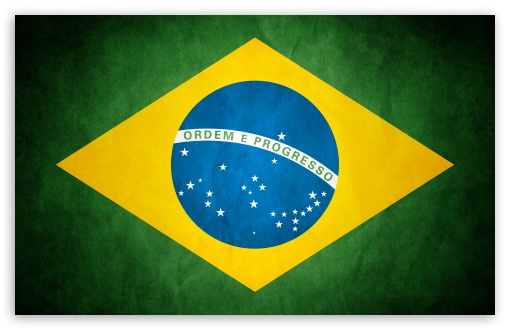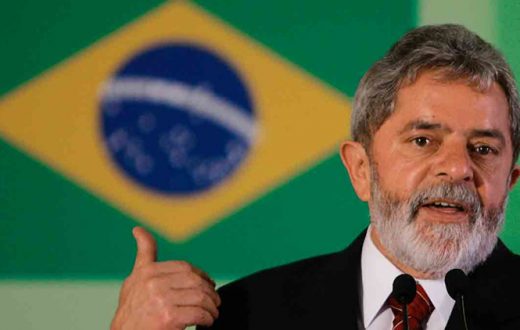Marion Anne Perrine Le Pen, more commonly known as Marine Le Pen, leads the French party “Front National”. Le Pen’s own father, Jean-Marie Le Pen, led the party himself for almost three decades. The party has come to represent the nationalist “extreme-right” of France.
But what exactly are the polarizing ideas that attract some, and repel others, from this political party? The very ideas that brought Le Pen to the second round of the 2017 French presidential elections?
Economic policy
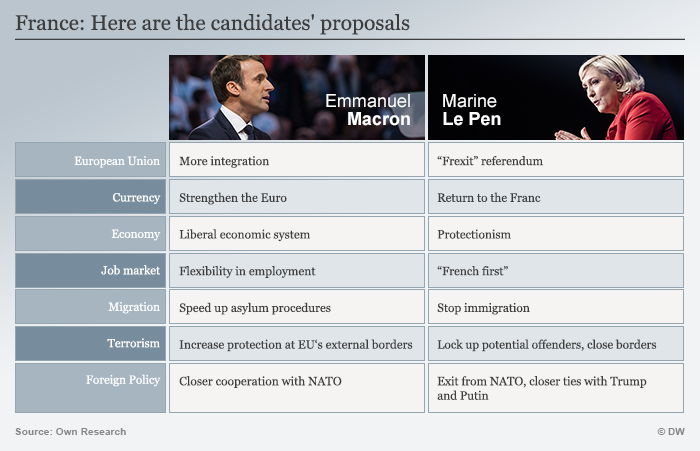
Credit: Deutsche Welle
Regarding the economy, Le Pen stands against the “wild globalization” supposedly benefiting banks and big companies. Instead, she supports “economic patriotism”, “intelligent protectionism” and the taxation of imported products. Remind you of somebody?
These proposals are extremely similar to the Plano Brasil Maior launched at the beginning of Dilma Rousseff’s administration. The policy contributed greatly to the Brazil’s economic performance at the time. Dilma’s administration increased importation taxes for 100 products in one policy alone.
As for agriculture, Le Pen also stands against the “ultraliberalism” of the international market, multinational companies, open competition and speculation. Her rhetoric resembles that of Brazilian socialist party PSOL and its 2014 candidate Luciana Genro. Moreover, Le Pen wants to increase taxes on big companies and banks, other policies that resound with the left.
Finally, in the energy sector, Le Pen says she’ll reduce prices by 5 percent under law. Once again, this policy resembles a measure adopted by Dilma’s government that aimed to reduce energy prices. However, in this case, the legislation had the opposite effect and actually caused prices to increase.
Social issues
When it comes to social issues, Le Pen has a questionable record. She is against euthanasia despite having supported a referendum re-opening the use of the death penalty. The presidential candidate also supports life sentences for grave crimes.
But a stance that may surprise those who ignored her for her label as “extreme right” is her position against changing abortion laws. In France, abortions are currently not only legal but also fully funded by the government.
The label of “extreme right” can sometimes hide important issues. As for her policy proposals, Le Pen’s nationalism isn’t just about closing France’s borders to immigrants but also leads her to push the same protectionist policies implemented by Rousseff in Brazil. Combined with questionable accounting maneuvers and a tough macroeconomic situation, these policies to close off Brazil to foreign products and companies caused one of the worst crises in Brazilian history.

